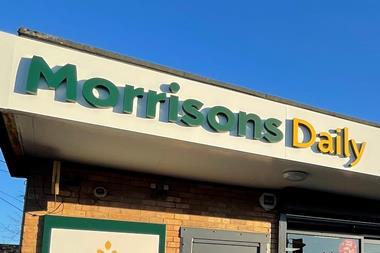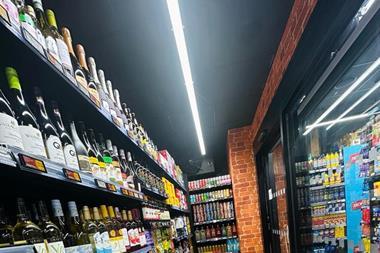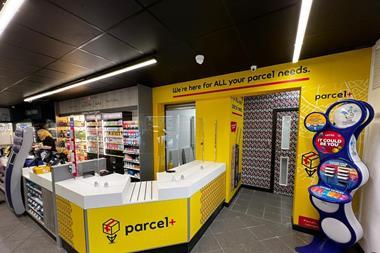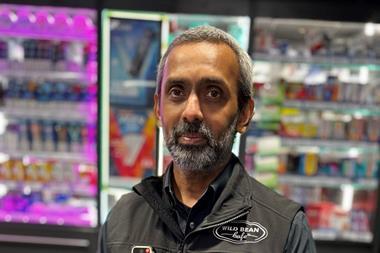Communities and retailers across the country are coming together to breathe new life into their beleaguered town centres. Robin Mannering reports
In Croydon Old Town, South London, an underpass beneath Jubilee Bridge connects a large residential area with the high street. It used to be neglected, poorly lit and intimidating, more of a barrier than a link. So when the community was awarded Portas Pilot status last year, it took immediate action to ensure more residents walked under the bridge into the heart of the Old Town.
“We installed new state-of-the-art lighting and artists painted murals which now blanket the walls,” says Paul Collins, a director of the town team which oversees the £100,000 pilot funding. “The artists were helped by young offenders and local McDonald’s staff. People walk through it now and the community looks after it.”
The project cost £10,000, split between the Portas pot and local sponsorship. But the value to the area is priceless, and shows how a community can take ownership of the high street, driven by the town team. “We’re a focal point for local groups to exchange ideas and come together - we see ourselves as facilitators,” Paul explains.
Local retailer Minesh Patel, of Quick Stop Express, says such initiatives can help reduce the fear of crime in the area. “People are scared. The area needs to be revived and invested in, but it’s got real potential,” he says.
Since the first wave of Portas Pilots was announced last year, they have at various times been met with indifference and cynicism, and not always without foundation. After all, why try to save the local high street if a footfall-diverting out-of-town retail park opens nearby? And how sincere is the government in saving the high street when it fails to intervene in planning applications which contradict the principles of national planning laws? The Secretary of State Eric Pickles, for example, recently gave final approval to an edge-of-town Tesco superstore in Margate, Kent - a flagship Portas Pilot town.
But progress in Portas towns such as Croydon - and in others without Portas status - shows that community action can make a difference. One way to pull together the local business community is through Business Improvement Districts (BIDs), some of which have been inspired by Portas Pilots. Such is the case in Bedminster, Bristol, where 85% of local businesses - including the local Premier convenience store - have agreed to increase their rates by 1.5% to generate £80,000 a year for the newly-formed BID.
The money has so far been spent on making the area greener, improving accessibility for the disabled, and establishing street markets and arts events. The town team is also working with the police to address the issue of street drinkers in order to improve the night-time economy, and it is discussing creative ideas to develop the street connecting the edge-of-town Asda.
It may take a while to significantly boost footfall, but the improvement to traders’ morale is immeasurable, says town team spokesman Ben Barker. “We’ve got a long-term project here. No one thought we could turn the situation around, but the most important improvement is that traders now have hope,” he says.
BID for success
The coastal town of Falmouth, Cornwall, is not a Portas Pilot, but its BID has implemented several initiatives to increase footfall over the past few years, including a free car-parking scheme in quiet months, an events programme, a £70,000 signage project to inform and encourage visitors to explore all areas of the town, and complimentary shuttle buses to take passengers from visiting ships to the town centre.
Ronnie Slater, owner of Moor News, is able to reap the rewards of the BID and influence decision-making, despite not having to pay the levy because his rates are below the required threshold. “But I would definitely vote to keep the BID if I was eligible, as I think the 1% levy is a very manageable cost for the amount of additional investment that it creates in our town,” he says. “Over the past three years a number of great events have been run to drive footfall into the town, such as the Splash festival of literature, the Spring festival and a recent Armed Forces Day. The free shuttle buses are another good example - before the BID, passengers from the cruise ships that came into port always stayed by the docks, but now they visit the whole of the high street.”
The benefits are clear. In the past year, 26 new outlets have opened in Falmouth town centre and vacancy rates have dropped to under 7%, compared with the national average of 14%.
In Market Rasen, a Leicestershire Portas Pilot town, vacancy rates have halved to about 10% on the back of the team’s pledge to tidy up the town, reinstate the market, focus on sustainable shopping and increase marketing activity. “Footfall massively increases on market days, and the market has won an award for best small speciality market,” says chairwoman Sarah Scott.
Back in Croydon, Collins says that six of the 12 units which were vacant are now in use. The town team has already spent £20,000 on events, marketing and branding and is planning to create a heritage trail, paid for by private sponsorship. It has also just launched a small business loan scheme and is planning to introduce a distress fund to help shops remain afloat.
But in order to address vacancy rates long term, the team has put tackling business rates firmly on its agenda. “We’re working with the council to find a solution,” Collins says. “We’d like long-standing businesses to get reductions - they should be rewarded and encouraged - while those who want quick wins, such as payday loan companies, shouldn’t benefit. And for empty units, rates should be doubled to encourage the owners to put them into use. The local authority has the power to do something and we’re trying to make them do it.”
In South East London, the Sydenham Portas Pilot has devised an innovative scheme to bring empty shops back into use. Through the ‘Shop Revolution’ project, retailers can set up business in pop-up shops rent-free for two months. Four pop-up shops are currently open for business in previously vacant units, two of which had been empty for years. “Often the landlords don’t know their options. There’s a disconnect between them and potential tenants, so we can act as negotiators,” says project manager Louise Brooks. “People see investment in pop-up shops and want to open, too,” In fact, just five days before C-Store visited, retailer Marza Bashir opened a 375sq ft convenience store near the station, encouraged by the growing high street confidence, he says.
Parking problems
In Liskeard, Cornwall, the town team is in discussions with businesses to subsidise parking, which costs £1 for a minimum two-hour stay in the town centre. The local Co-operative, a town team partner, is talking to other businesses about rolling out a redemption scheme across town, in which shoppers would get a 50% discount on parking if they spend £10 or more at a particular business.
The Cornish Portas Pilot town has also rolled out a programme of seasonal events, focusing on early evening markets. “We’ve identified demand for early evening events,” says town team chairwoman Sally Hawken. “And there’s an explicit link between evening markets and boosting footfall across town.” However, they have eschewed “bog standard markets which don’t usually work” in favour of bi-monthly themed markets. “We had a weekend of events in April centred on wool. We’re a market town with agricultural history, so it pulled in a niche audience from across Cornwall.”
The government admits that Portas Pilots “are not the solution to the high street”, but it is on to something in its claim that things will happen on the ground “when local authorities, businesses and communities work together to use the support and funding available”.
Even if Portas funding isn’t at hand, towns such as Falmouth have shown what can be done through initiatives such as BIDs. “My message would be for everyone to get behind any initiatives designed to help retailers, as without groups such as the BID we wouldn’t have as much say in the future of our towns, or be able to access the valuable resources that these groups offer,” Ronnie concludes. ■
MAKE A BID
Business Improvement Districts (BIDs) allow the business community to work together to improve the local trading environment. They are funded by a levy - usually calculated as a percentage of business rates - paid for by the participating businesses. More than 150 BIDs are now operating in England, and a number of Portas Pilot towns aim to add to that list.
The government has committed to a £500,000 loan fund to support new BIDs, and is set to introduce legislation to allow BIDs to operate across a wider area.
Martin Blackwell, chief executive of the Association of Town & City Management, says there are many reasons why local retailers should support and get involved with their local BID. “They can range from waste and utility programmes where savings generated can more than offset the increase in rates being paid to the BID, to additional marketing and other services,” he says. “In addition, the BID will act as a local collective to market and promote the area, as well as work with partners such as the council to continually enhance the trading environment.”





















No comments yet